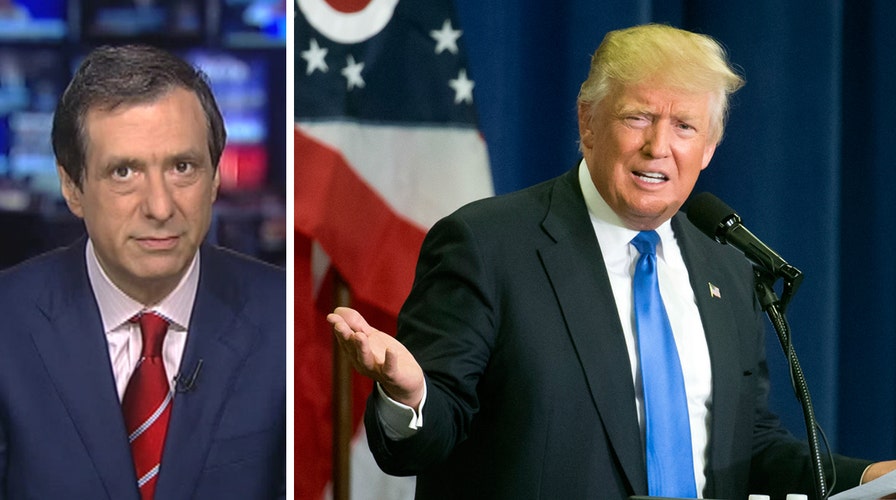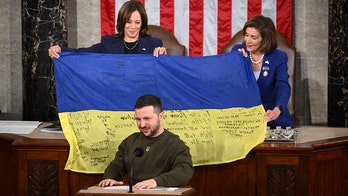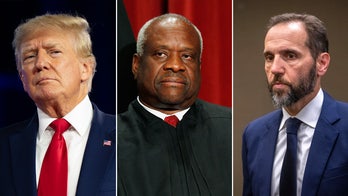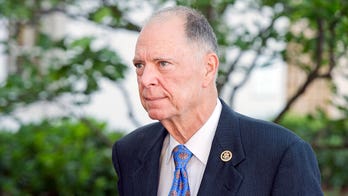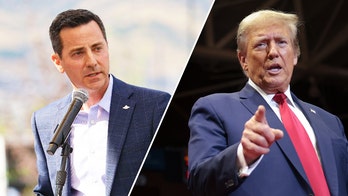Kurtz: Donald Trump's selective media strategy
'MediaBuzz' host Howard Kurtz reacts to the faction within the Trump campaign that appear to want to limit his media exposure
Donald Trump, in a sharp shift in strategy, is now refusing to appear on many television outlets, and top advisers who want to limit his exposure are no longer notifying him of every interview request.
According to sources familiar with the campaign, one faction is worried that the constant rounds of interviews entail too much risk of the candidate making mistakes or fanning minor controversies, even though his mastery at driving the media agenda helped power his Republican primary victory.
A series of clashes over these and other tactical questions has caused Trump himself to openly question who is running his campaign, the sources say. And he has expressed anger when he believes his orders aren’t being followed.
On the media front, Trump is no longer appearing on CNN or MSNBC. He is staying off the Sunday talk shows. Nearly all his national television interviews since June 1 have been with Fox News.
This more restrictive approach, combined with recent incidents in which some aides have acted contrary to Trump’s wishes, suggests a power shift as his children and especially his son-in-law, Jared Kushner, play an increasingly influential role.
Trump, who has resumed his full-throated denunciations of the media—such as calling CNN the Clinton News Network—personally vetted every TV invitation for most of the campaign. Now the staff is weeding out many requests without consulting him, the sources say, which could either be viewed as a mark of professionalization or an attempt to restrain Trump from being Trump.
Those in the caution camp want to avoid any repetition of Trump’s March sitdown with MSNBC’s Chris Matthews, when he stumbled in suggesting that women should be punished for abortions. They do not share the candidate’s boundless confidence in taking on all media adversaries.
Several weeks ago, high-level staffers concluded at a meeting that the boss should be limited to no more than three interviews a week, print reporters included. He wound up meeting that quota in just half a day. But aides now vet whether certain reporters can ride on his plane, which used to be a snap decision by Trump.
Even CNN President Jeff Zucker, who worked with Trump at “The Apprentice” when he ran NBC, is said to no longer have unfettered access to the billionaire.
Trump’s last interview with CNN was a phone call to the morning show “New Day” on June 13.
Trump’s last interview with MSNBC was on May 20, a phoner to “Morning Joe.” Once a regular on the show, Trump has repeatedly slammed Joe Scarborough and Mika Brzezinski for their harsh criticism of him, telling me that the former GOP congressman “went totally rogue” and “went essentially to the Democrats’ side.”
Since June 1, Trump has appeared 18 times on Fox News Channel and twice on Fox Business Network, undoubtedly viewing them as friendlier terrain. These include multiple interviews with Bill O’Reilly, Sean Hannity and “Fox & Friends.”
Trump has ripped Fox in the past, famously boycotting an Iowa debate because Megyn Kelly was one of the moderators. At a rally Wednesday night, Trump said, “Fox is tough on me but they are fair. And MSNBC, nobody watches it so I don’t care.”
Trump hasn’t been on a network morning show since late June. He also did a June 23 sitdown with NBC anchor Lester Holt, and network reporters have occasionally pulled him aside for a few questions on the trail.
Yet even while effectively boycotting much of the television establishment, Trump remains far more accessible to journalists than Hillary Clinton, who has not held a news conference this year.
When veteran Beltway strategist Paul Manafort took over as campaign chairman, he sought to limit Trump’s Sunday morning exposure, which sometimes included appearances on three or four of the shows. Trump’s last interview on “Fox News Sunday” was April 3, on ABC’s “This Week” May 8, and on CNN’s “State of the Union” June 5. Trump hasn’t appeared since June 19 on “Face the Nation” or “Meet the Press.”
At the Wednesday rally in Ohio, Trump ripped into the man he called “Sleepy Eyes Chuck Todd”—a moniker he had long put aside—and proclaimed that he had boosted the ratings of “Meet the Press,” only to be hit with unfair coverage. “These are disloyal people,” he said. Loyalty, of course, is not in the journalistic job description.
The Republican nominee also complained about CNN’s coverage of the so-called Star of David tweet, which critics said used an anti-Semitic image against Clinton, a view vehemently denied by Trump. He called CNN “dishonest as hell” and added, “These people are sick.”
But the tweet controversy also underscored the sometimes chaotic nature of the campaign. Trump had wanted the Twitter message to remain and is said to be furious when his staff deleted it without telling him. “You shouldn’t have taken it down,’” he said. “You know, they took the star down. I said, ‘Too bad, you should’ve left it up.’”
Trump’s defense of the contested tweet breathed new life into a negative story that had been fading after several days, diverting attention from the public scolding that FBI Director James Comey gave Hillary Clinton for mishandling classified information, even as he declined to pursue criminal charges.
That is the obvious downside of Trump’s scattershot approach. But he chafes at having to read scripted addresses and keeps liberating himself with stream-of-consciousness speeches, feeding off the energy of the crowds. Advisers who favor this approach say it’s more important for Trump to enjoy himself on the trail, even at the cost of blurring his message.
Manafort is still firmly in charge of the campaign’s direction, relationship with party power brokers and the Cleveland convention. But Kushner, who is married to Ivanka Trump and owns the New York Observer, is increasingly handling the day-to-day mechanics, constantly talking to the candidate, despite his lack of political experience.
While Trump is avoiding numerous television outlets, he still works the phone lines, and one source said he recently had a private call with MSNBC’s Rachel Maddow, a frequent critic.
Some advisers believe the reduced media schedule is largely a function of greater general-election demands on Trump’s time, from courting donors to meeting with possible running mates. Some in his inner circle have told him that he needs to reach beyond cable’s modest audiences and leave more of the televised combat to spokeswoman Katrina Pierson.
Others say it doesn’t matter if Trump bypasses interviews on CNN and MSNBC as long as those networks, along with Fox, keep carrying extended portions of his evening rallies, with the added benefit that he doesn’t have to answer questions.
Trump has been in constant skirmishes with the press since he launched his campaign, but his sharper rhetoric these days reflects a view that the media are trying to “assassinate his character,” as one member of his team put it. And that helps explain why the man who once blitzed the airwaves round the clock is now carefully picking his spots.
